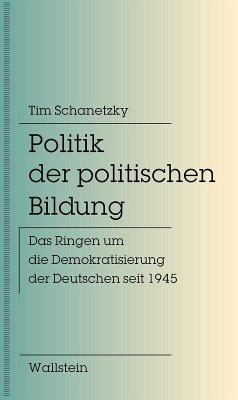
Foundations of American Political Thought
Readings and Commentary
Herausgegeben: Polin, Raymond; Polin, Constance

PAYBACK Punkte
0 °P sammeln!
Foundations of American Political Thought: Readings and Commentary explains American historical concepts and key political ideas from 1620 to 1910. In this primer for democracy, all verbatim passages and original documents point to their original intentions and ideological movements. Key terms and basic terminology are incisive and essential for a thorough understanding of democracy. This book represents the setting and trends that produced sound progress in American political growth.













